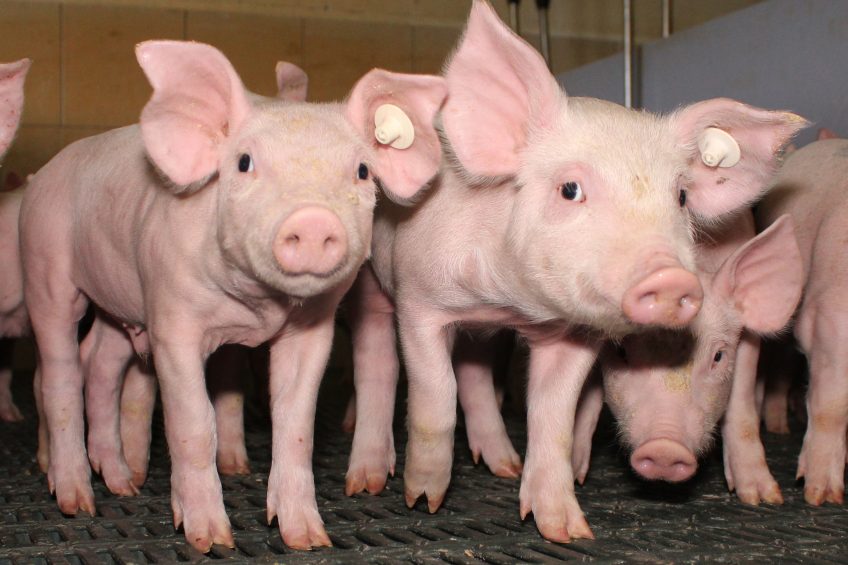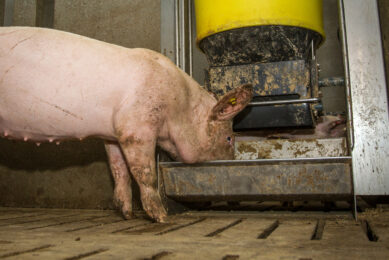Benefits for piglets when using TBCC diet additive

Adding 100 or 200 mg/kg of tribasic copper chloride (TBCC) to piglet weaning diets has been observed to be beneficial to piglets in various ways, US scientists report.
The researchers state that the TBCC was observed to have beneficial effects on performance indicators like:
- Average Daily Gain,
- Feed Conversion Ratio (Grain:Feed) and
- body weight gain, and also
- helped reduce diarrhoea scores.
These outcomes were reported by Charmaine Espinosa and Prof Hans H. Stein, University of Illinois, United States. The study was done over a 4-week experimental period.
Alternative way of supplying copper to piglets
Tribasic copper chloride (TBCC) is an alternative way in which copper can be supplemented to piglets. The researchers wrote that usually supplemental copper is offered in the form of copper sulfate. TBCC, they wrote, has been shown to be equally effective and may even be more bioavailable. Until recently, they said, it wasn’t really known how much of it should be fed to optimise performance.
Copper is essential for piglets as a micronutrient. In addition, high dosages have been observed to improve growth performance, probably because of an antimicrobial effect in the intestinal tract, Espinosa and Stein wrote. Their experiment aimed to determine the effects of adding 100 or 200 mg/kg TBCC to diets fed to weanling pigs.
Trial with 150 weanling pigs
In their report, the researchers described how 150 weanling pigs with an average initial body weight of just over 10 kg were fed a common phase 1 diet for 14 days after weaning. On day 14 post-weaning, they wrote, pigs were randomly allotted to 3 dietary treatments:
- The control diet was based on corn and soybean meal;
- The first additional diets consisted of the control diet plus 100 mg/kg TBCC;
- The second additional diet consisted of the control diet plus 200 mg/kg TBCC.
Pigs were fed their respective diets for 28 days. Individual pig weights were recorded at the beginning of the experiment, after 14 days and at the conclusion of the experiment. Average daily gain (ADG), average daily feed intake (ADFI), and average gain:feed ratio (G:F) were calculated.
Diarrhoea scores were assessed visually every other day using a score from 1 to 5, with 1 being normal faeces and 5 being watery diarrhoea.
Better growth performance, less diarrhoea
Over the period of days 14-28, ADG, Feed Conversion Ratio (G:F), and final weight were greater for pigs fed diets containing 100 or 200 mg/kg TBCC compared with pigs fed the control diet (see Table 1). Final body weight on day 42 was also greater for pigs fed diets containing 100 or 200 mg/kg TBCC compared with pigs fed the control diet. No differences in growth performance were observed between diets containing 100 mg/kg TBCC and diets containing 200 mg/kg TBCC.
In the overall 4-week period, pigs fed diets containing 100 or 200 mg/kg TBCC had less severe diarrhoea scores than pigs fed the control diet (Table 2). In addition, pigs fed 100 mg/kg TBCC had diarrhoea on fewer days than pigs fed 200 mg/kg TBCC or the control diet.
This report is based on unpublished research by Charmaine Espinosa and Hans H. Stein.











